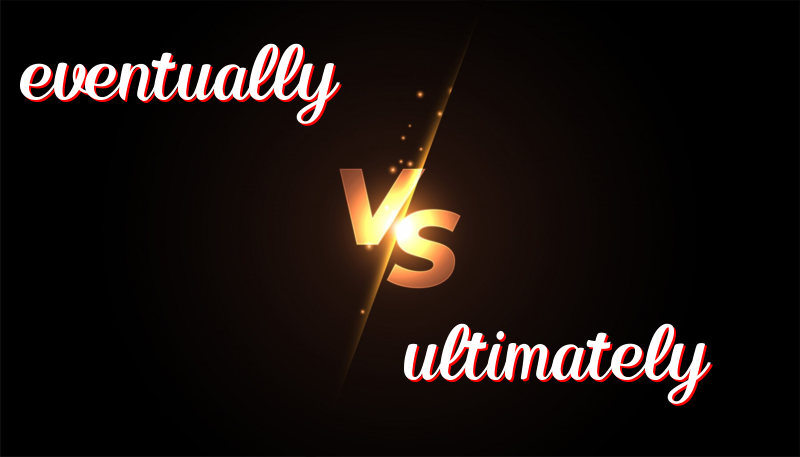英語單詞eventually 與 ultimately的區別
September 24, 2024
最終 (Eventually) 和最終 (Ultimately) 之間的差異
當學習英語時,了解類似詞彙的差異和何時使用非常重要。 “Eventually” 和 “ultimately” 都可以譯為 “最終”,但它們在使用上略有不同。以下將詳細介紹這兩個詞彙的歷史、如何使用以及記住它們區別的技巧。
Eventually 的歷史和用法
“Eventually” 這個詞源自於拉丁語 “eventualis”,意思是 “事件的結果”。該詞在 17 世紀開始進入英語語言。 “Eventually” 通常用於描述在某個過程或一連串事件之後終於發生的事情。
使用 “eventually” 的五個例句:
- He worked very hard and eventually became the CEO of the company.
他工作非常努力,最終成為公司的首席執行官。 - After many setbacks, they eventually found a solution to the problem.
經過許多挫折後,他們最終找到了解決問題的方法。 - The rain finally stopped and we could eventually go outside.
雨終於停了,我們最終可以出門了。 - It took several years, but she eventually completed her degree.
花了幾年時間,但她最終完成了她的學位。 - Eventually, the truth about the incident was revealed.
最終,事件的真相被揭露了。
Ultimately 的歷史和用法
“Ultimately” 一詞同樣來自拉丁語 “ultimatus”,其意為 “最終的”。該詞在 15 世紀左右進入英語語言。 “Ultimately” 更常用於討論最終的目的、結果或最高的目標。
使用 “ultimately” 的五個例句:
- Ultimately, the decision rests with the board of directors.
最終,決定權在董事會手中。 - Their hard work will ultimately pay off.
他們的辛勤工作最終會獲得回報。 - Although the journey was long, it was ultimately worthwhile.
雖然旅程漫長,但最終是值得的。 - Ultimately, the success of the project relies on teamwork.
最終,項目的成功依賴於團隊合作。 - Ultimately, it is up to you to make the final decision.
最終,做出最終決定的是你。
記住區別的技巧
記住這兩個詞彙區別的簡單方法是: “eventually” 更偏重於經過一段時間或者過程後發生的某件事;而 “ultimately” 更側重於事情的最終目的或者結果。
總結
總之, “eventually” 和 “ultimately” 都意味著 “最終”,但它們的使用情境不同。 “Eventually” 聚焦於經過一段歷程後的結果,而 “ultimately” 聚焦於目標或最終目的。

Leave a Reply
You must be logged in to post a comment.